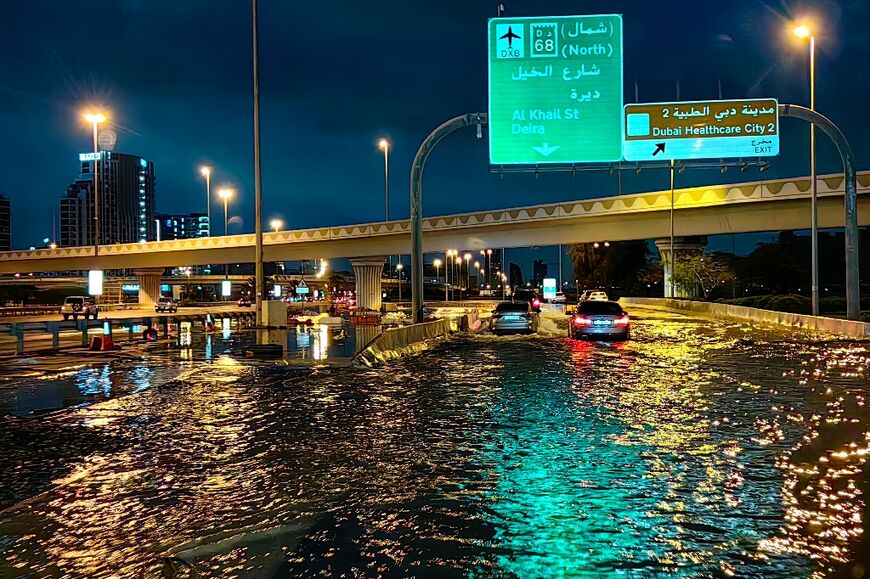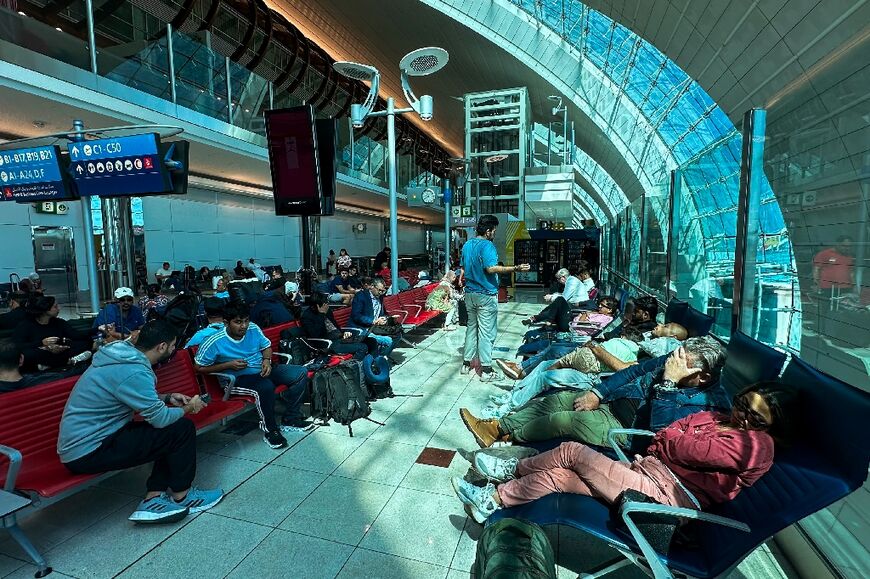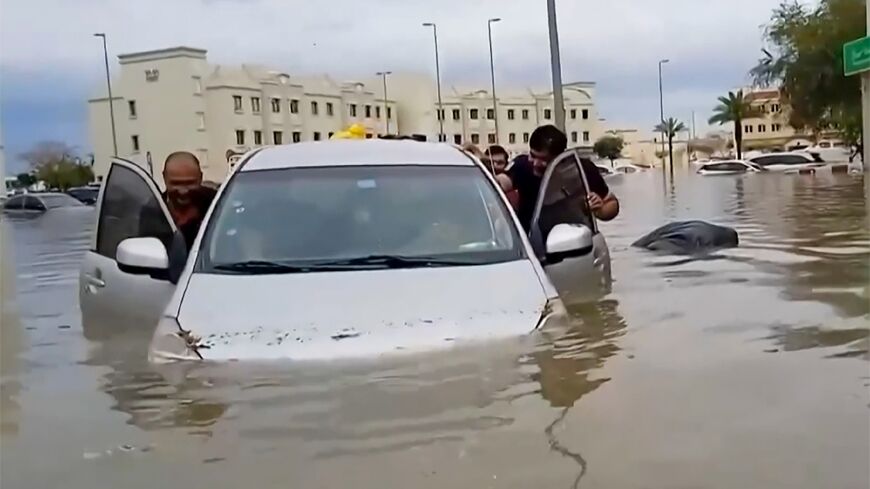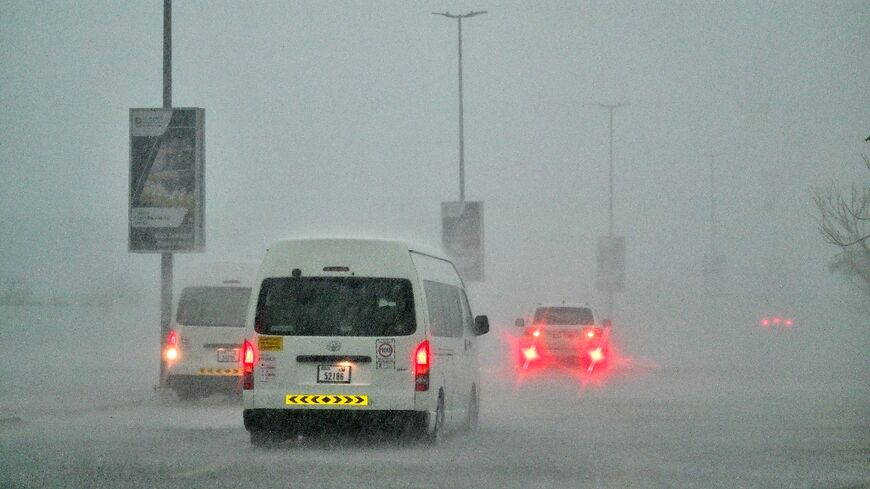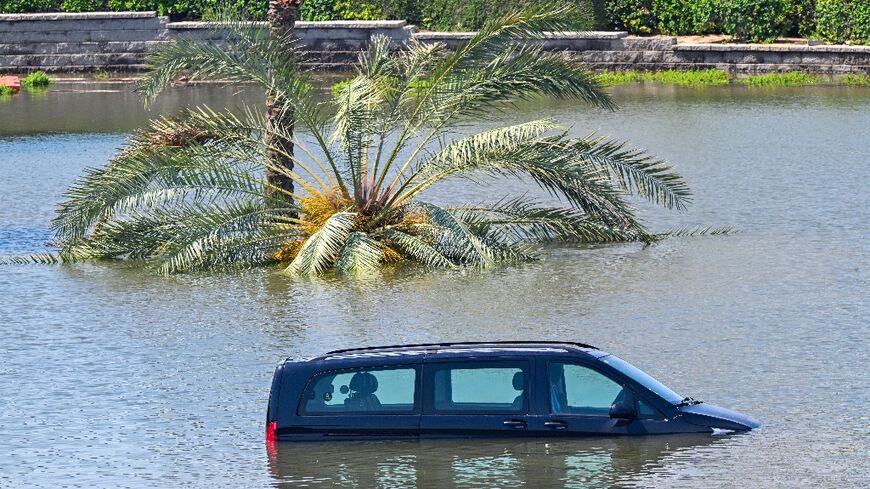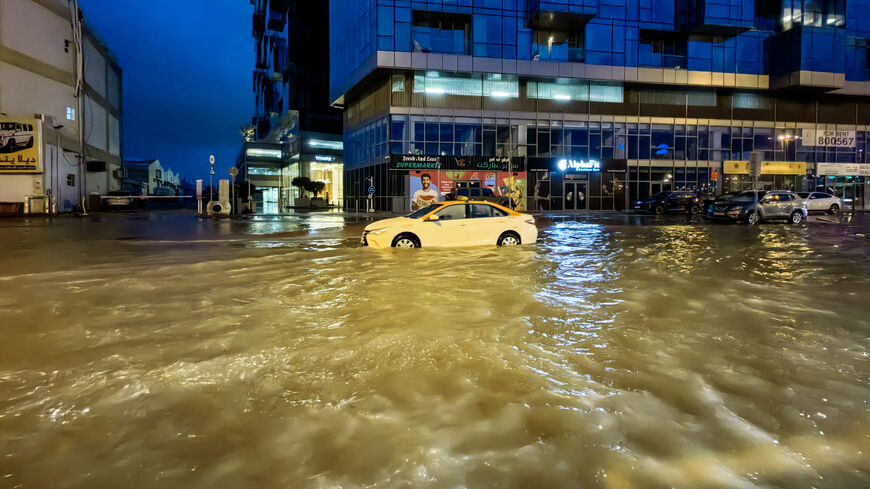Dubai roads, airport reel from floods after record rains
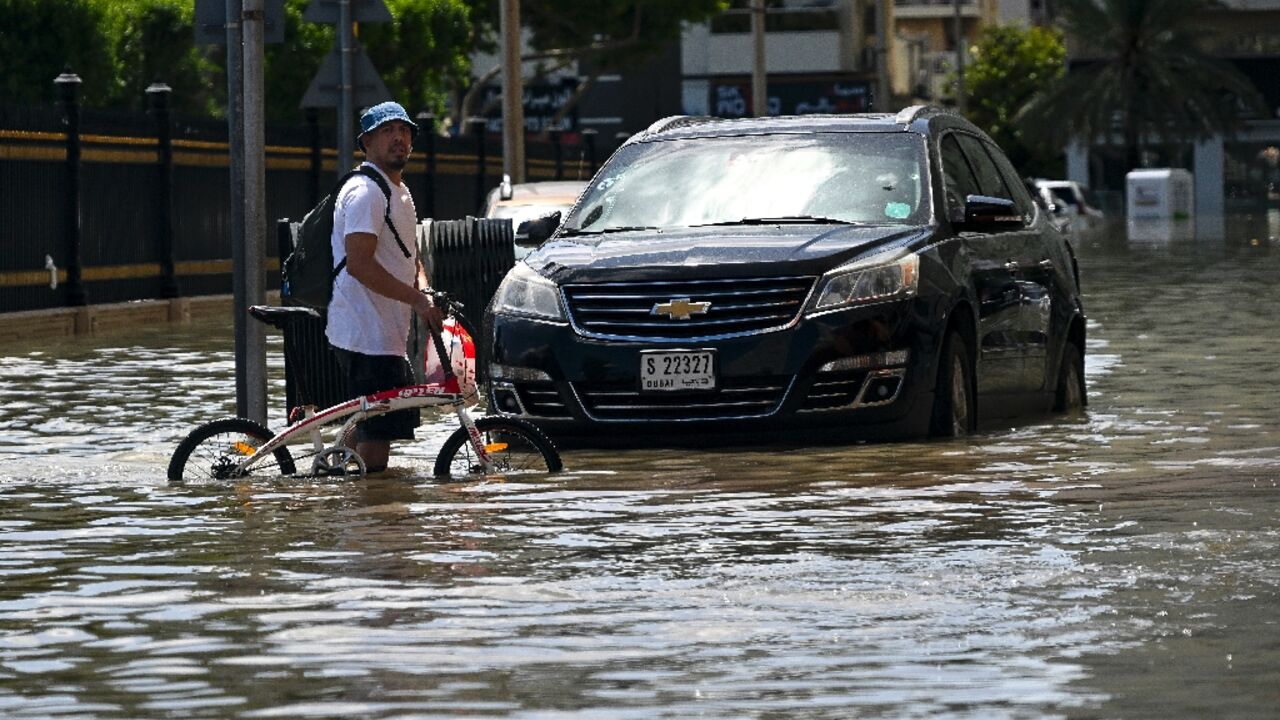
Dubai's giant highways were clogged by flooding and its major airport was in chaos as the Middle East financial centre remained gridlocked on Wednesday, a day after the heaviest rains on record.
Tailbacks snaked along waterlogged, six-lane expressways after up to 259.5 millimetres (10.2 inches) of rain, the most since records began 75 years ago, fell on the desert United Arab Emirates on Tuesday.
At least one person was killed, a 70-year-old man who was swept away in his car in Ras Al-Khaimah, one of the oil-rich country's seven emirates, police said.
Power outages were reported around Dubai, which was dotted with flooded areas and submerged and abandoned cars. One road tunnel near the airport was flooded to its roof, and some residential villas were thigh-deep in water.
Similar scenes were visible around the Gulf state including in Sharjah, neighbouring Dubai, where residents waded through main streets and paddled around on makeshift boats.
As sunny skies returned on Wednesday, a day after torrential downpours and rolling black clouds, stories emerged of residents stuck in cars and offices overnight.
"It was one of the most horrific situations I had ever experienced," said one Dubai resident in his 30s, who did not want to give his name, after his 15-minute commute turned into a 12-hour ordeal on flooded roads.
"I knew that if my car broke down, it would sink and I would drown with it."
Schools will remain closed in Dubai until next week, authorities said, underscoring the difficulty of the clean-up.
- 'Chaos' -
In an unusual direct intervention, President Sheikh Mohamed bin Nayan ordered "authorities to quickly work on studying the condition of infrastructure throughout the UAE and to limit the damage caused", official media said.
Sheikh Mohamed also gave orders for affected families to be transferred to safe locations, said a statement carried by the WAM news agency.
Meanwhile, operations slowed to a crawl at Dubai airport, the world's busiest by international traffic, as staff were unable to arrive with roads flooded and most public transport suspended.
With nearly every flight repeatedly delayed, passengers were told to stay away "unless absolutely necessary", Dubai Airports said. Emirates, Dubai's flagship airline, cancelled all check-ins.
At a connections desk, a large crowd formed, clapping and whistling in protest at the lack of information.
"They are completely lost, it's complete chaos -- no information, nothing," fumed one passenger, who did not want to be named, after a 12-hour wait.
Scores of flights were also delayed, cancelled and diverted during Tuesday's torrential rain, when planes were recorded taxiing through deep water.
The storms hit the UAE and Bahrain overnight Monday and on Tuesday after previously lashing Oman, where 19 people were killed including children.
Maryam Al Shehhi, senior weather forecaster at the UAE's National Center of Meteorology, denied a report that the UAE had carried out cloud seeding -- spraying chemicals to increase rainfall.
"We did not use cloud seeding because (the storm) was already strong," Shehhi told AFP.
Climatologist Friederike Otto, a specialist in assessing the role of climate change on extreme weather events, said it was "misleading" to focus on cloud seeding.
"The heaviest rainfall in Dubai for 75 years didn't happen because of cloud seeding," he said.
"When we talk about heavy rainfall, we need to talk about climate change. Focusing on cloud seeding is misleading."


